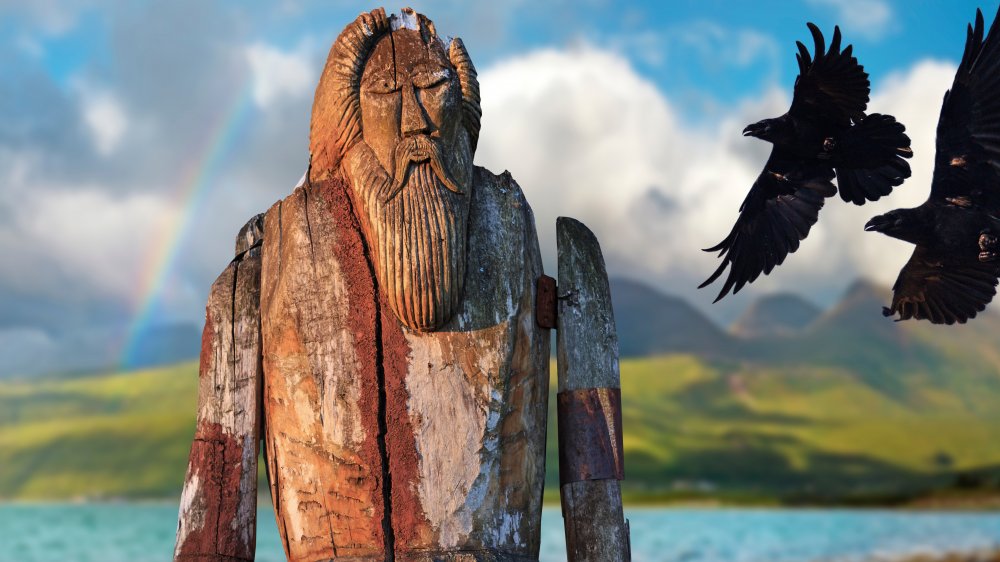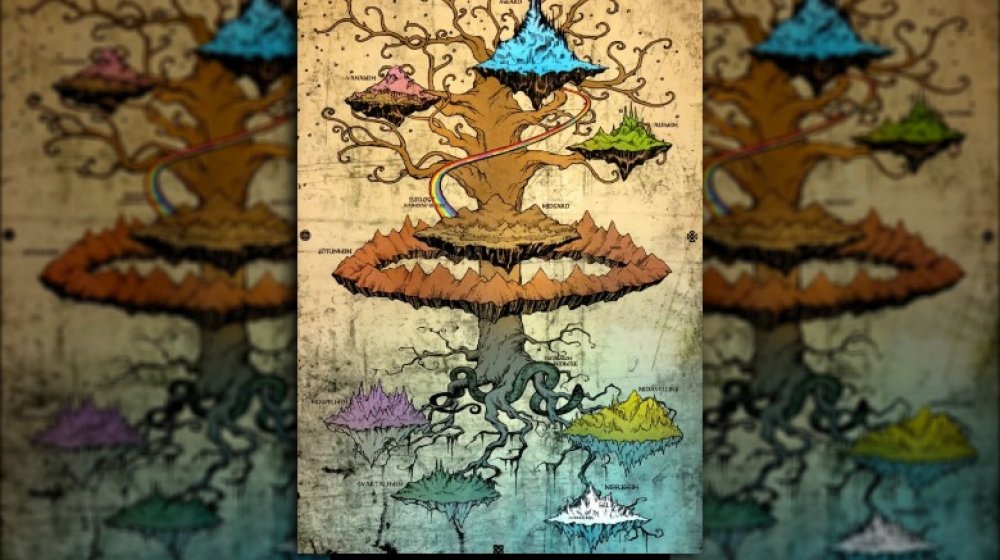The Reason The Number 9 Is So Important In Norse Mythology
Faith, spirituality, and numbers have often been intertwined. Whether you examine the the 613 mitzvot mentioned in the Talmud, the trinity in Christianity, or the patterns involved in sacred geometry, numbers have always played a key role in different belief systems. The mythology of the Vikings, then, was no exception. For them, a special significance was held in regard to the numbers three, seven, eight, and nine, according to Norse-Mythology.net.
Now, not every one of these numerals held the same importance. Eight, for example, seems to have been regarded as unlucky, while three was regarded as a sacred number relating to Odin, Vili, and Ve, the three beings who first created the human race. The number nine, though, reoccurs the most often. Why?
Yggdrasil boasted nine worlds. How many worlds do you have?
The picture above is a contemporary depiction of Yggdrasil, the so-called "World Tree" of Norse cosmology, which grew each of the worlds upon its branches and roots. Even if you never studied Norse legends in school, you're probably vaguely familiar with Yggdrasil from jewelry, Marvel Comics, or House of Leaves, and while there are plenty of things that Marvel gets wrong about Norse mythology, the modern stories do accurately reflect the fact that this tree links nine worlds: Asgard, Niflheim, Muspelheim, Alfheim, Jotunheim, Vanaheim, Svartalfheim, Helheim, and Midgard, the world of humans.
Now, if you're living in a universe that has nine worlds held up on a tree, nine is obviously going to be a supreme number. The important of nine may be derived from the lunar calendar's 27 days being a multiple of nine (say it, kids, nine times three equals ...), according to philologist Rudolf Simek, and throughout the many Norse legends, the number reappears quite often. For instance, there are tales of sacrificial feasts lasting for nine days, involving nine sacrifices. Heimdall, the guy who guards the rainbow bridge Bifröst, was born to nine women, which must've certainly made for complex family dinners. The god Freyr was made to hold off on marrying Gerd for, you guessed it, nine days. When Odin hung himself from a branch of Yggdrasil, peering down into the dark waters beneath him, he stared downward for nine long nights, at the end of which he was permitted to see the secrets beneath. Finally, during Ragnarök — the Norse doomsday — Thor's great battle against the villainous Midgard Serpent ends with the God of Thunder stumbling for nine steps before he collapses dead.
So, if you were a character in Norse mythology, and a super-important event was afoot, you could probably count on something nine-related happening soon. Good to know!

